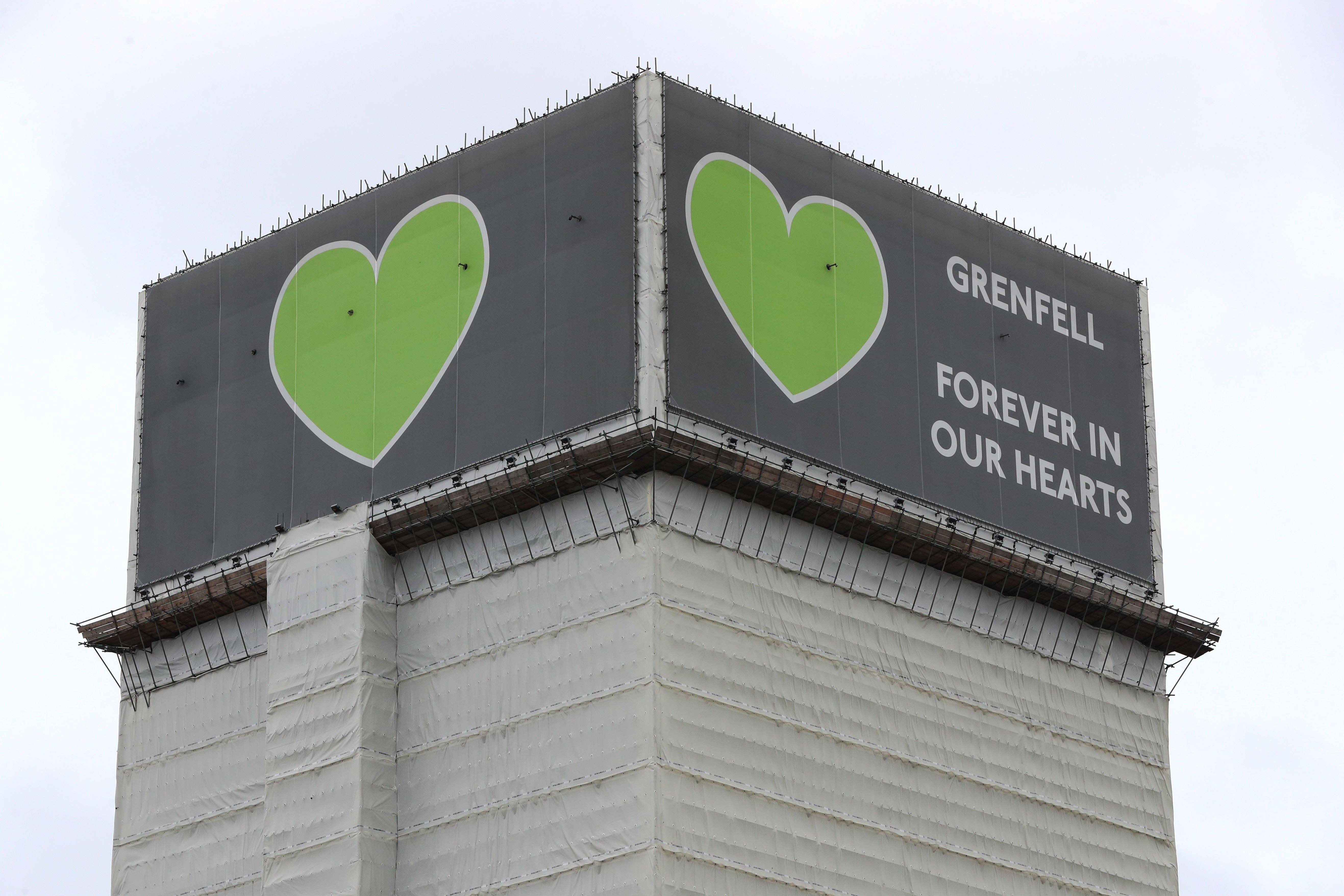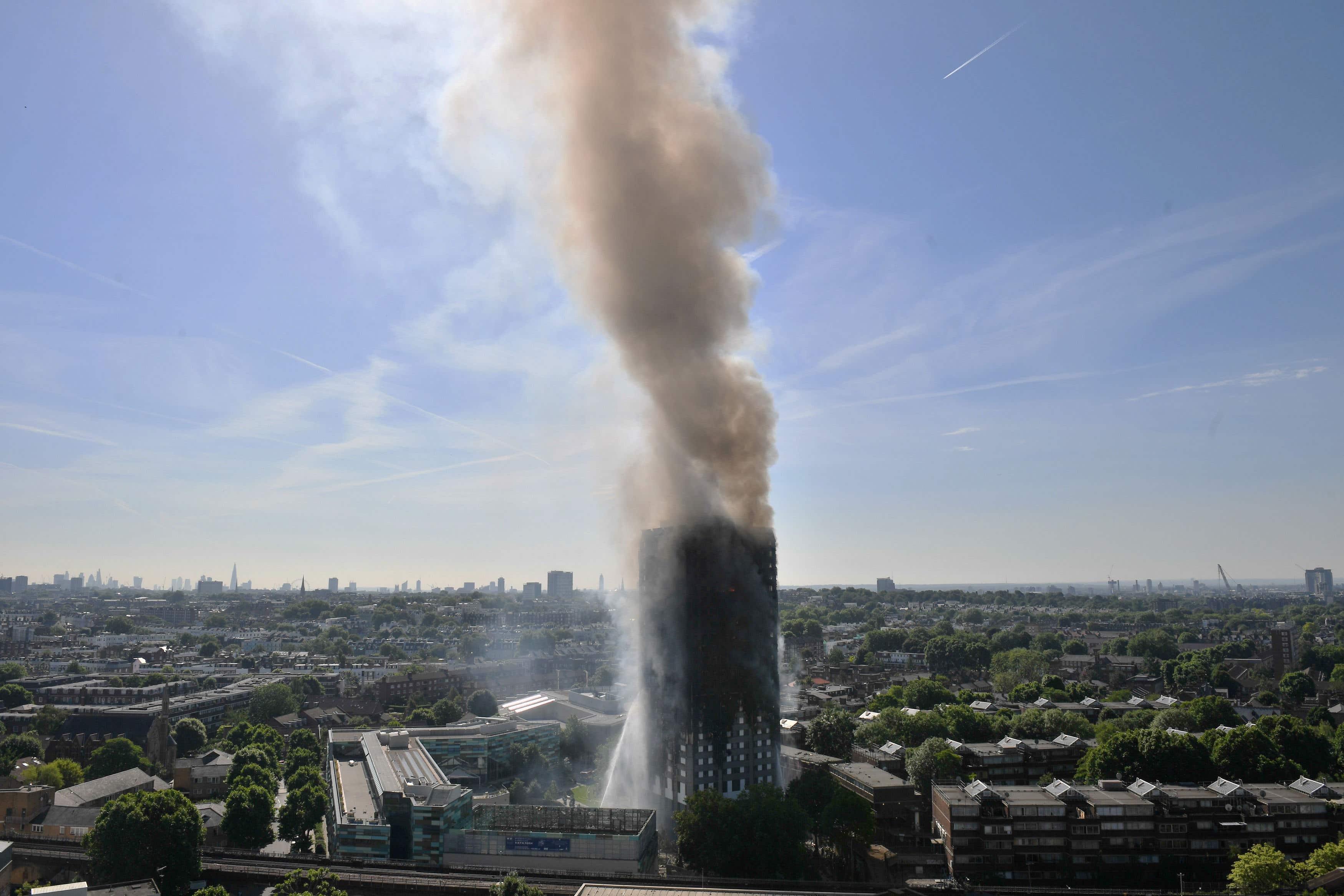Firms accused of ‘merry-go-round of buck-passing’ in Grenfell Tower inquiry
‘Spider’s web of blame’ has been created by refusal of core participants to accept responsibility, final hearing told

Your support helps us to tell the story
From reproductive rights to climate change to Big Tech, The Independent is on the ground when the story is developing. Whether it's investigating the financials of Elon Musk's pro-Trump PAC or producing our latest documentary, 'The A Word', which shines a light on the American women fighting for reproductive rights, we know how important it is to parse out the facts from the messaging.
At such a critical moment in US history, we need reporters on the ground. Your donation allows us to keep sending journalists to speak to both sides of the story.
The Independent is trusted by Americans across the entire political spectrum. And unlike many other quality news outlets, we choose not to lock Americans out of our reporting and analysis with paywalls. We believe quality journalism should be available to everyone, paid for by those who can afford it.
Your support makes all the difference.Companies appear to have used the Grenfell Tower inquiry to “position themselves for any legal proceedings” that may follow it, instead of showing remorse, the final hearing has been told.
In closing submissions on Thursday, lead counsel Richard Millett KC accused firms of a “merry-go-round of buck-passing” in order to protect their own interests.
The fire at the residential tower block in North Kensington, west London, in June 2017 killed 72 people and triggered a public inquiry, chaired by Sir Martin Moore-Bick.
The “spider’s web of blame” created by the refusal of core participants to accept responsibility will make the task of the panel – which must examine the circumstances that led to the deaths – even harder, Mr Millett said.
Mr Millett highlighted a number of issues at play in the build-up to the tragedy, including poor regulation, inadequate legislation, the influence of commercial interests and “the failure to pay due respect to the idea of ‘home’ as a physical aspect of human privacy, agency, safety and dignity”.
“Those are abstract ideas, but the fire, the last moments of those who were trapped and doomed in and by that building, and the deaths that ensued, are anything but,” he said.
Closing statements have been made on behalf of core participants to the inquiry – which include cladding giant Arconic, fire inspectors Exova, and insulation manufacturers Celotex and Kingspan.
Many of those involved have failed to accept blame for their role in the events prior to the disaster, showing a “lack of respect” for the victims and their families, the inquiry heard.

Mr Millett said: “Expressions of regret for the victims of the fire have been as common to the point of trite as admissions of responsibility have been rare.
“A tragedy of these dimensions ought to have provoked a strong sense of public responsibility.
“Instead many – not all, many – core participants appear simply to have used the inquiry as an opportunity to position themselves for any legal proceedings which might or might not follow in order to minimise their own exposure to legal liability.
“Quite apart from the lack of respect that that stand shows to the victims and their families, it makes your task all the harder.
“A public inquiry is not the place for cleverness, but for candour.
“The public has a right to expect that those persons granted core participant status … will in turn act in the public interest by making admissions against their own private interests where the evidence justifies it.
“That expectation has been largely disappointed.”
The inquiry earlier heard from Sean Brannigan KC, representing Exova, who distanced the firm from the decision to use ACM PE – a type of cladding that has been largely blamed for the rapid spread of fire – on the tower.
But Mr Brannigan said the decision-makers who sought to “cut corners” and prioritise cost over safety by choosing the cheaper option of ACM PE were to blame.
The inquiry also heard from Jason Beer KC, for the Department of Levelling Up, Housing and Communities, who said the department “apologises unreservedly” for its failure to recognise weaknesses in the regulatory system.
“The department recognises that it failed to appreciate it held an important stewardship role over the regime and that as a result it failed to grasp the opportunities to assess whether the system was working as intended.
“For the department’s failure to realise that the regulatory system was broken and that it might lead to a catastrophe such as this, the department is truly sorry and apologises unreservedly,” he said.
Concluding the hearing, inquiry chairman Sir Martin said the panel had already started working on its final report and promised to produce it “as soon as we can”.
He said: “I (can) confirm work on our final report has already begun. Inevitably there is a long way to go. We are well aware we need to produce the report as soon as we can.
“We will ensure we don’t keep you waiting any longer than is absolutely necessary.”



